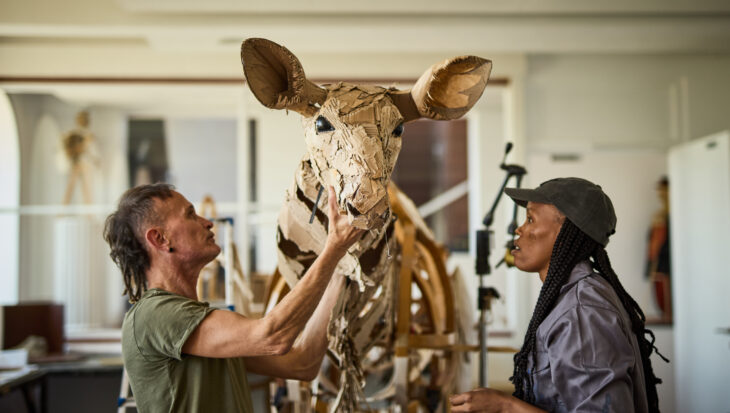‘The Herds’ will be arriving in London this Friday!
Have you heard? A breathtaking arts initiative, ‘The Herds’ will be arriving in London this Friday.
Posted 27 Jun 2025

Posted on the 6th May 2004
Professor William 'Twink' Allen, who conducts invasive experiments on horses at the Thoroughbred Breeders' Association's Equine Fertility Unit based at Cambridge University, claims that the Home Office has bowed to pressure from animal rights protesters when it banned him from conducting horse cloning experiments.
Professor Allen says he now plans to appeal the decision, which was taken a year ago.
In fact, the H.O.’s judgement was made because the scientific evidence shows that the harm caused to the experimental animals clearly outweighs any potential good that might arise. The professor’s arguments for wanting to proceed with cloning are fairly nakedly commercial. Because Italian scientists have begun equine cloning, we must follow suit or “lose our competitive edge”.
The reality is that cloning experiments create an extremely high number of abnormal foetuses and sickly newborns. Even so, Allen told a House of Lords Select Committee in 2002 (1) that he did not see any “ethical or welfare considerations”: arising from such problems. “If an abnormal animal is produced we will put it down.”
Thoroughbred horses are already seriously under stress because of selective breeding programmes that put a premium on extra speed at the cost of general health and robustness. Fewer and fewer Thoroughbred foals make it to the starter’s flag, while stress-related conditions such as bleeding lungs and gastric ulcers are at epidemic levels. Equine cloning will simply increase these pressures.
Professor Allen – father in law of jockey Frankie Dettori – is already busily experimenting in the area of “assisted” pregnancies. He was reported in April 2001 to have produced the world’s first test tube foals, named Quickzee and Eezee. And he headed a team that has experimented with another “advanced” reproduction method that the racing authorities currently prohibit – embryo transfer (ET). Already used in non-racing equine circles, ET maximises the output from a single prized horse by flushing several eggs from her at once. These are then grown in other less valuable horses. The various steps involved in ET call for deep probes into and manipulation of the rectum and vagina, repeated internal flushings using litres of water, the administration of hormones and other drugs, sometimes the surgical removal of the ovaries, and the “exteriorisation” of part of the womb called the uterine horn. This last procedure involves an incision being made in the flank of the recipient mare so that part of her uterus can be pulled through the opening.
In the case of the professor’s ET experiments (2), rather than getting a low value Thoroughbred to grow an embryo obtained from a more valuable animal, embryos were switched between ponies and much larger Thoroughbreds. This resulted in several stillbirths, abortions and the delivery of nutritionally deficient, mutant foals. Some suffered muscle wastage and freakishly long and malformed legs and hooves; their ankles were bent right over on the ground.
Andrew Tyler, Director Animal Aid
Have you heard? A breathtaking arts initiative, ‘The Herds’ will be arriving in London this Friday.
Posted 27 Jun 2025

As the greyhound racing industry releases its annual data on the number of dogs’ deaths, a raft of well-known names - alongside their canine friends - has called upon the Government to end greyhound racing....
Posted 26 Jun 2025
